
Gliflodap 10mg Tablet
Manufacturer
Bioaltus Pharmaceuticals Pvt Ltd
Salt Composition
Dapagliflozin (10mg)
Key Information
Short Description
Gliflodap 10mg Tablet is used alone or in combination with other medicines to treat type 2 diabetes mellitus. It helps control high blood sugar levels and reduces the risk of serious complications.
Dosage Form
Tablet
Introduction
Gliflodap 10mg Tablet can be taken with or without food at any time of day but should be taken at the same time every day. The dose will be decided by your doctor. Do not stop taking it without consulting your doctor, as this may increase your blood sugar levels and put you at risk of serious complications like kidney damage and blindness. This medicine is part of a treatment program that includes a healthy diet, regular exercise, and weight reduction as advised by your doctor. Common side effects include fungal infection of the vagina, nasopharyngitis, and urinary tract infections. It may cause the body to lose too much water, so drink plenty of fluids to prevent dehydration. Maintaining good hygiene can help prevent fungal infections in the genital area. Inform your doctor if you have any kidney or liver problems, urinary tract infections, or if you are on diuretics. Pregnant or breastfeeding women should consult their doctor before taking it. Avoid excessive alcohol intake while taking this medicine and monitor your blood sugar levels regularly.
Directions for Use
Take this medicine in the dose and duration as advised by your doctor. Swallow it whole. Do not chew, crush, or break it. Gliflodap 10mg Tablet may be taken with or without food, but it is better to take it at a fixed time.
Safety Information
Side Effects
Fungal infection of the vagina Nasopharyngitis Urinary tract infections Dehydration
Alcohol Warning
It is unsafe to consume alcohol with Gliflodap 10mg Tablet.
Breastfeeding Warning
Gliflodap 10mg Tablet is probably unsafe to use during breastfeeding. Limited human data suggests that the drug may pass into breastmilk and harm the baby.
Pregnancy Warning
Gliflodap 10mg Tablet may be unsafe to use during pregnancy. Limited studies in humans, but animal studies have shown harmful effects on the developing baby. Consult your doctor.
Interacting Medicines
Amiloride Beclometasone Betamethasone Chlorthalidone
How it works
Gliflodap 10mg Tablet is an antidiabetic medication. It works by removing excess sugar from your body through urine.
Quick Tips
Used alone or with other diabetes medicines to control blood sugar and avoid long-term complications. May cause dehydration or frequent urination. Drink plenty of water. May cause hypoglycemia when used with other antidiabetic medicines or if you delay or miss a meal. Carry sugary food or fruit juice to manage hypoglycemia symptoms. Can cause genital fungal and/or urinary tract infections. Practice good hygiene. Monitor your blood sugar regularly. Inform your doctor if you experience constant dizziness, joint pain, cold-like symptoms, or unexplained nausea/vomiting.
Related Medicines
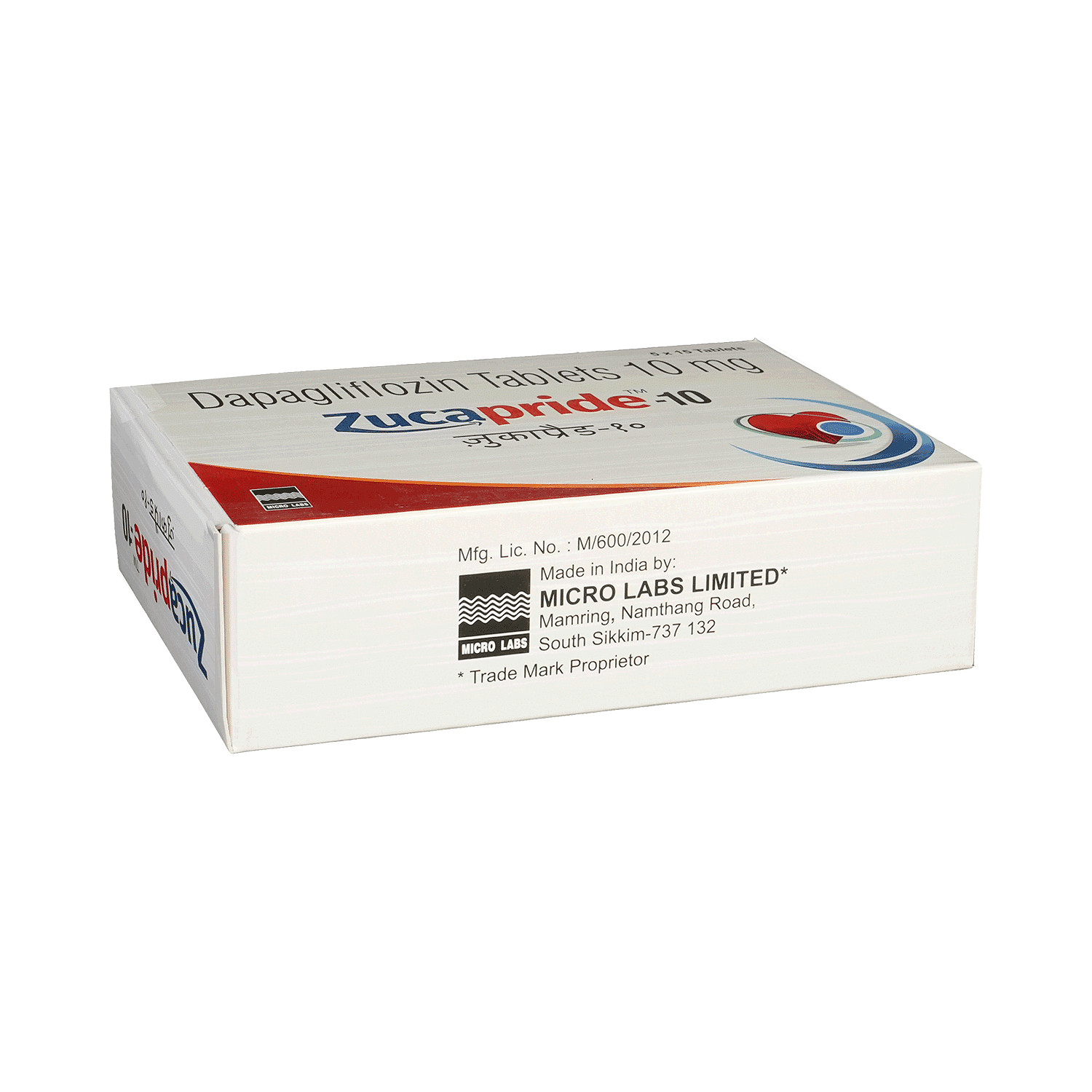
Zucapride 10mg Tablet

Gluject 10 Tablet
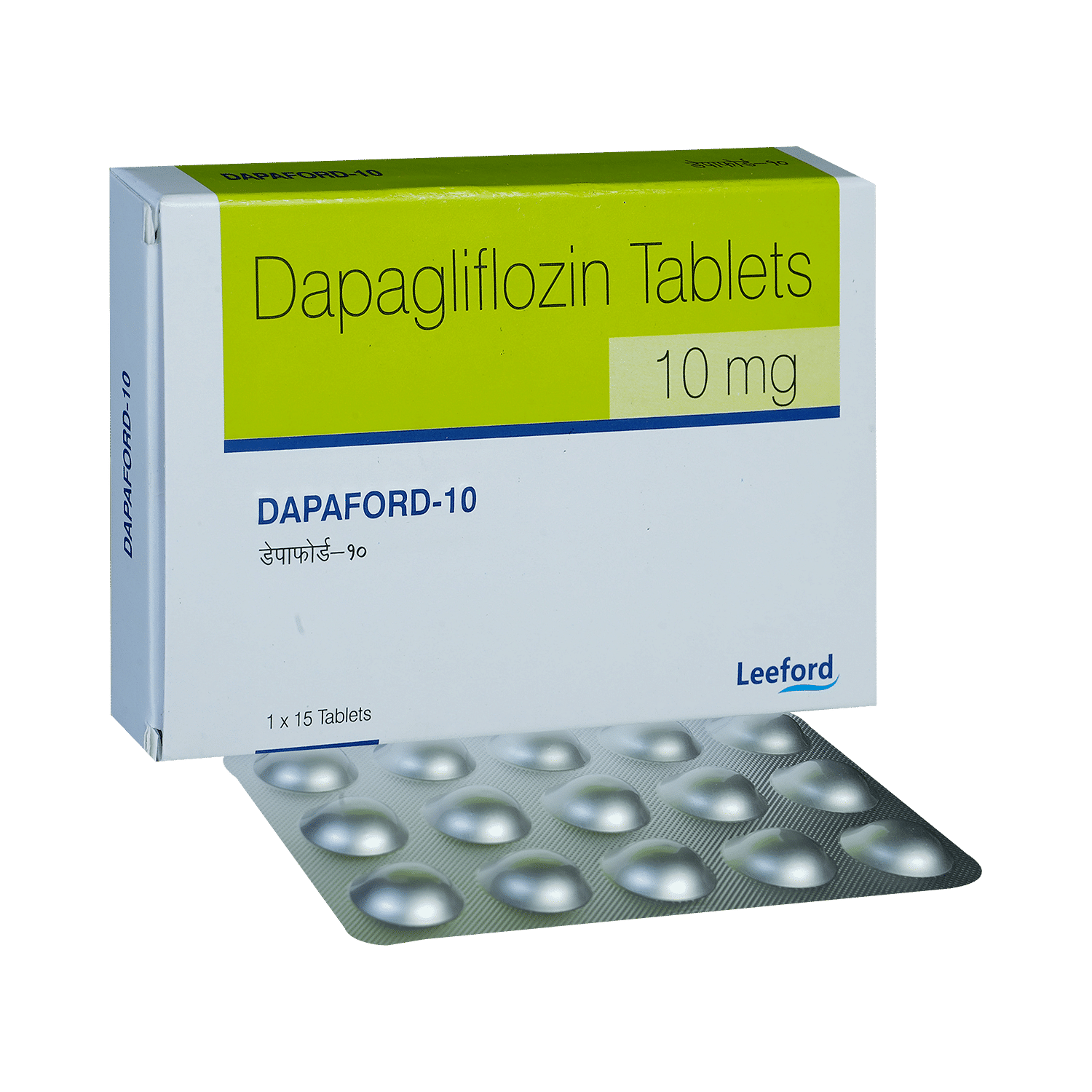
Dapaford 10 Tablet
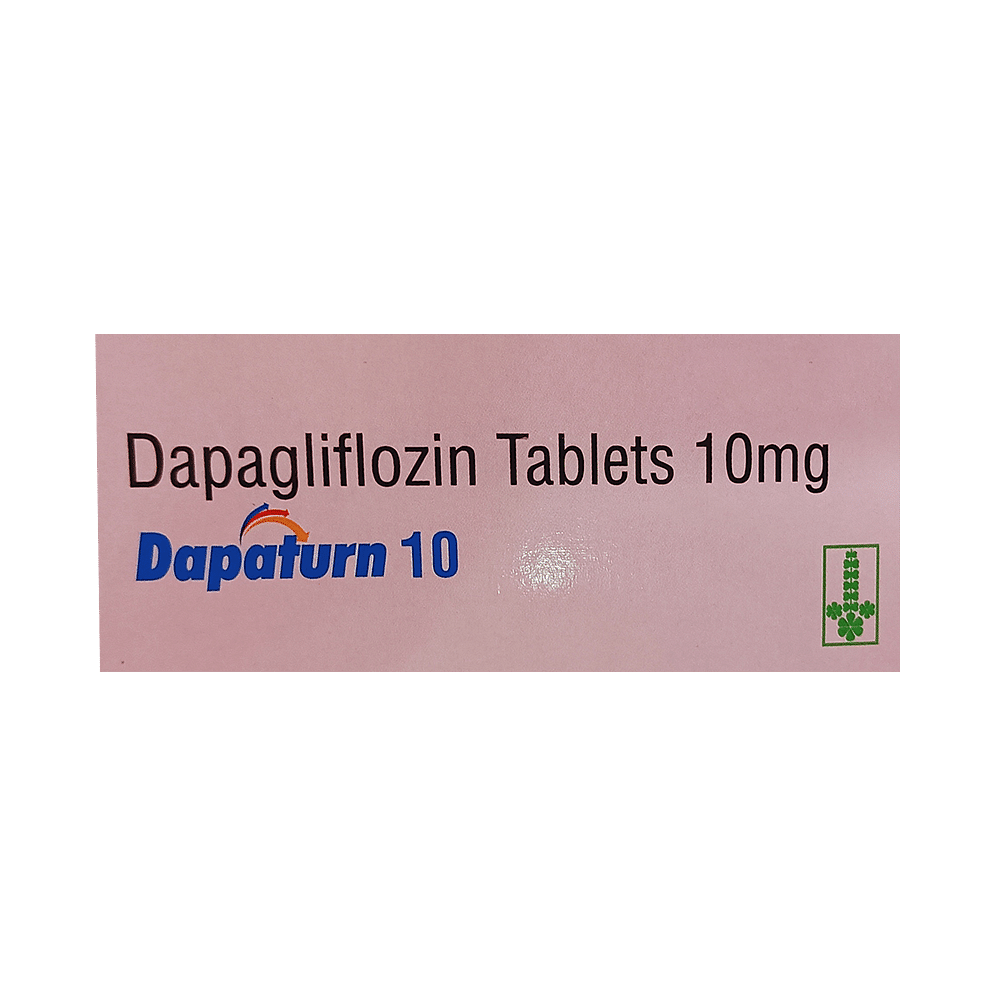
Dapaturn 10 Tablet
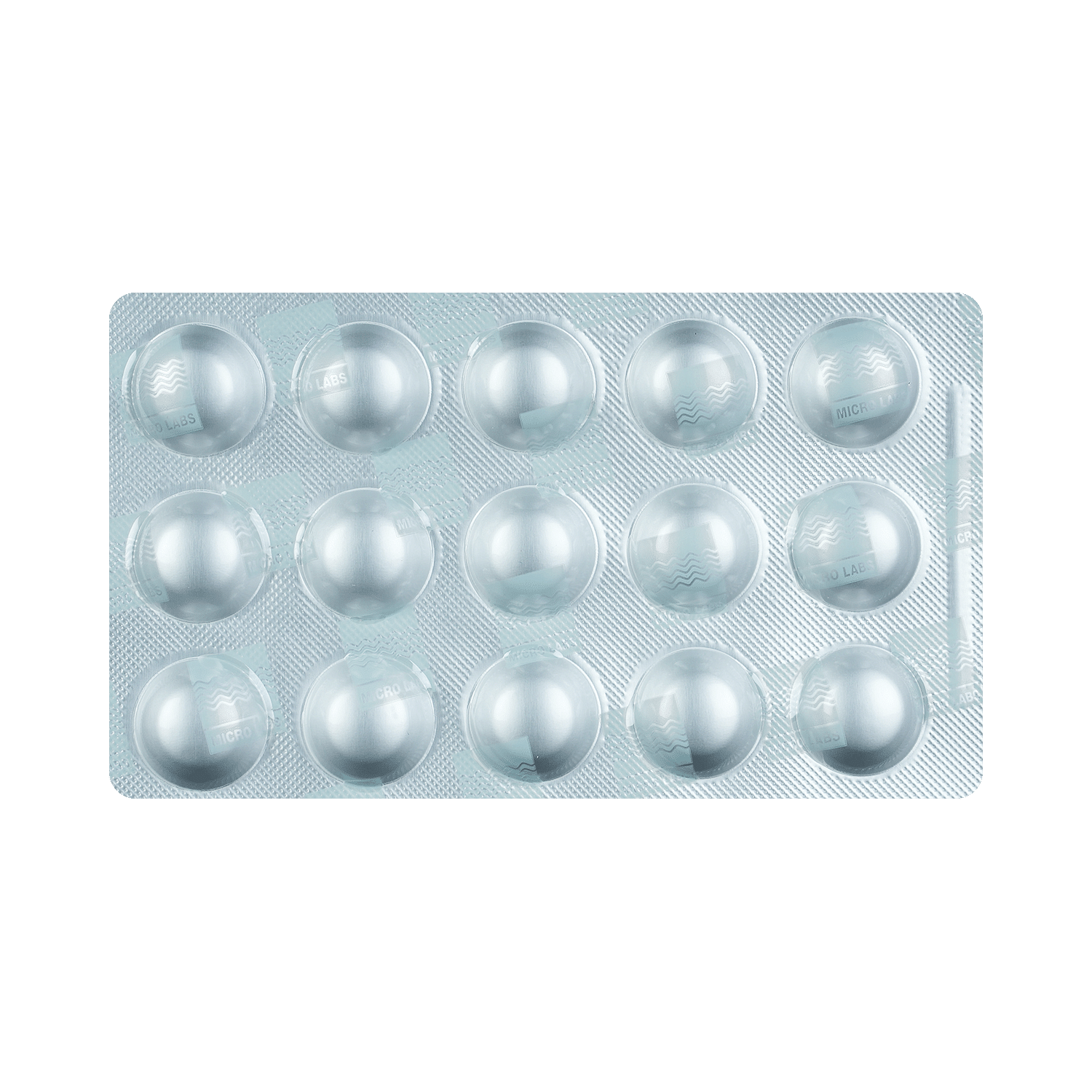
Dajio 10 Tablet

Dapifin Tablet
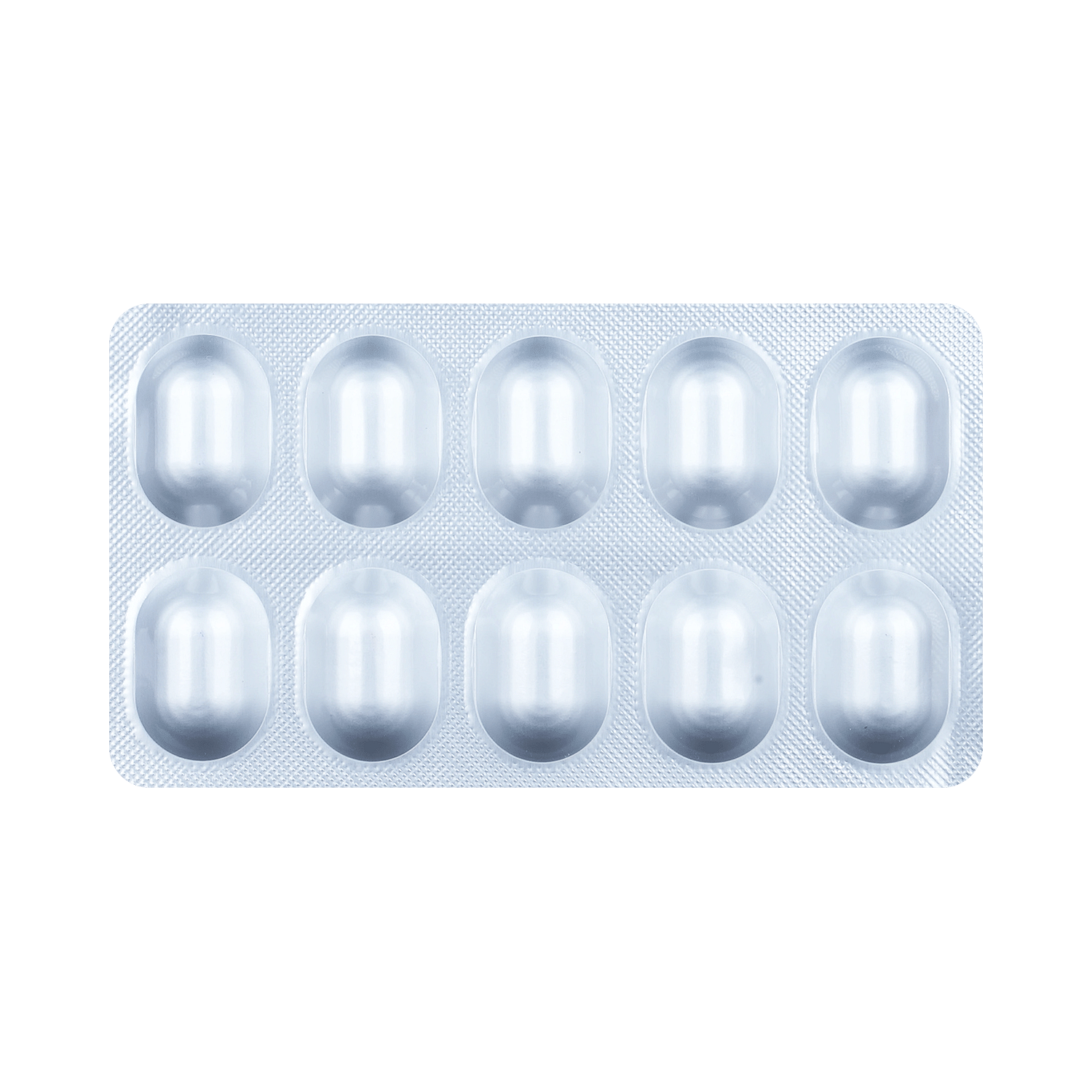
Glucreta 10mg Tablet
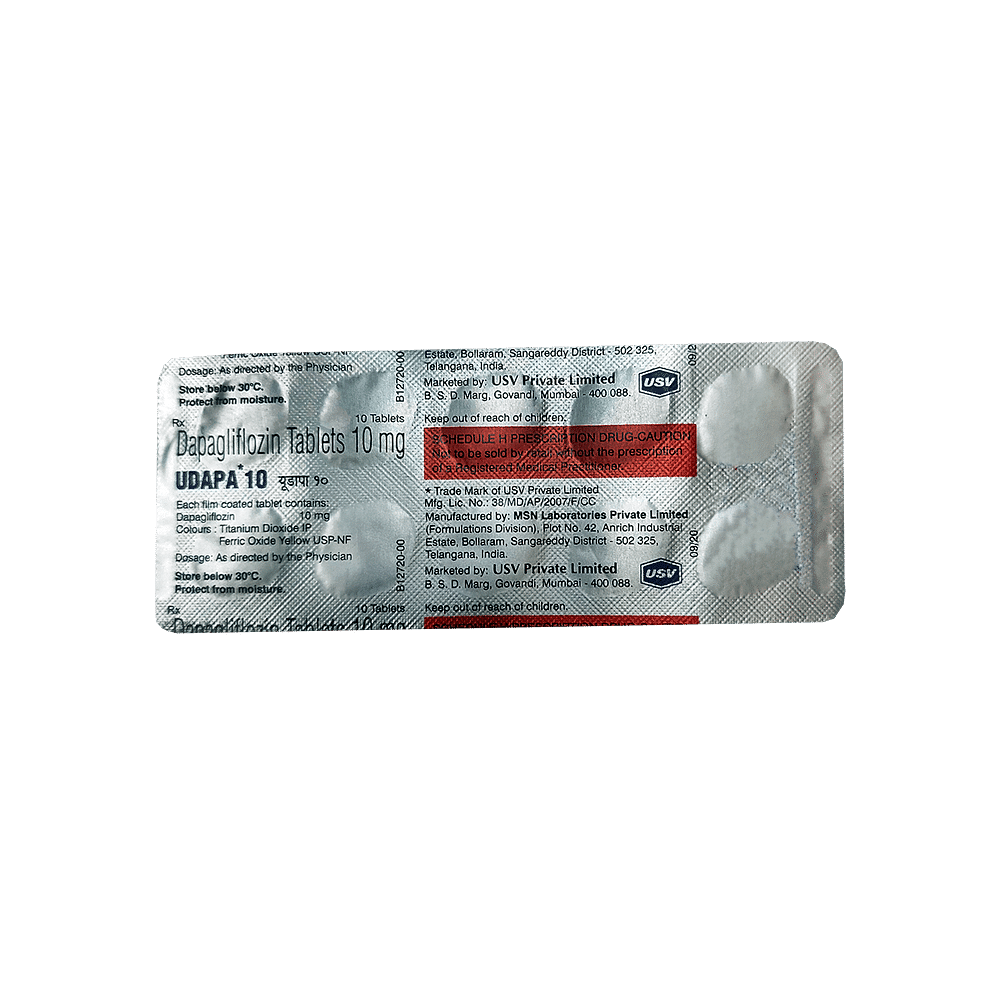
Udapa 10 Tablet
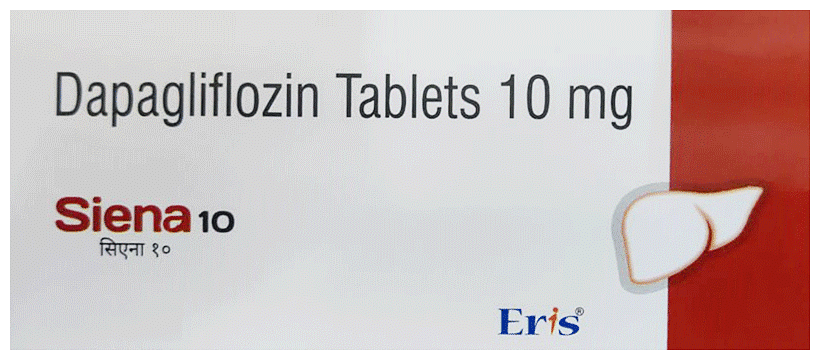
Siena 10 Tablet
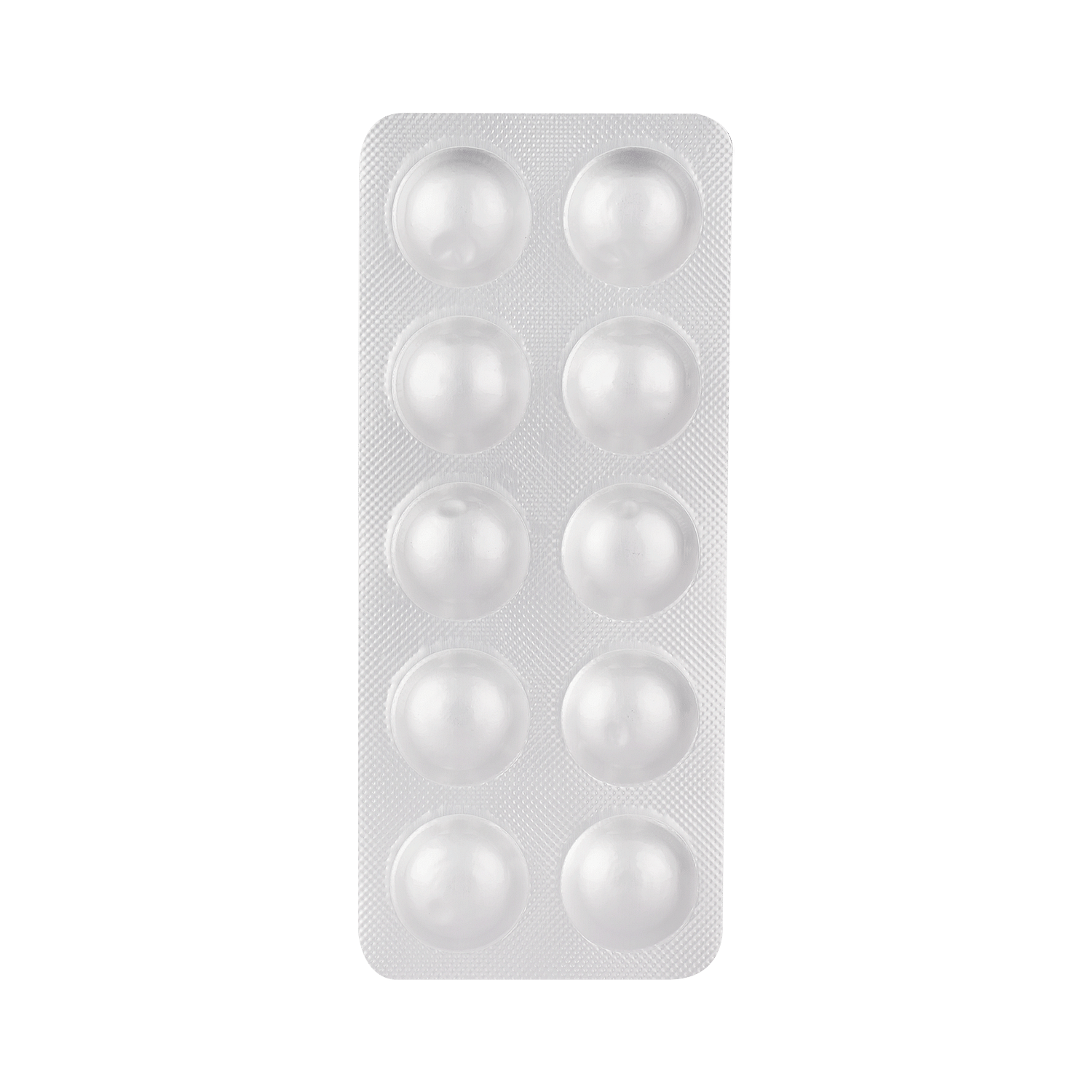
Sgltd 10 Tablet
Frequently asked questions
Does Gliflodap 10mg Tablet cause weight loss?
Gliflodap 10mg Tablet may lead to weight loss in some individuals, though this is a relatively uncommon side effect. If you experience sudden weight gain or have concerns about your weight, it's essential to discuss them with your doctor.
What are the potential side effects of Gliflodap 10mg Tablet?
Using Gliflodap 10mg Tablet may result in symptoms such as a stuffy or runny nose, sore throat, vaginal yeast infections, and penis yeast infections. Additionally, you might experience frequent urination throughout the day or at night, along with changes in urine quantity.
What is Gliflodap 10mg Tablet used for?
Gliflodap 10mg Tablet is prescribed to lower blood glucose levels in patients with type 2 diabetes. In this condition, the body struggles to properly use produced insulin, leading to increased sugar levels in the blood. Gliflodap 10mg Tablet works by removing excess sugar from your body through urine and can also help prevent heart disease.
Is Gliflodap 10mg Tablet safe to use?
Yes, Gliflodap 10mg Tablet is safe when used as directed by your doctor. However, it may cause some side effects. For the best results, it should be used in the correct dose and at the same time each day.
Can I stop taking Gliflodap 10mg Tablet?
No, you should not stop taking Gliflodap 10mg Tablet without first talking to your doctor. Sudden discontinuation of this medicine may worsen your diabetes. Inform your doctor if your symptoms bother you or if there is no significant improvement in your condition. The doctor might suggest an alternative medicine that could be more effective for treating your diabetes.
Who should not take Gliflodap 10mg Tablet?
Patients allergic to Gliflodap 10mg Tablet should avoid using this medicine. Additionally, it's highly recommended that patients on dialysis or with severe kidney problems do not use Gliflodap 10mg Tablet.
Can I take Gliflodap 10mg Tablet before surgery?
Inform your doctor that you are taking Gliflodap 10mg Tablet before going for the surgery. The doctor may ask you to stop taking this medicine before your operation due to a risk of developing diabetic ketoacidosis, a serious condition that may develop if high blood sugar is not treated.
Why did my doctor prescribe Gliflodap 10mg Tablet along with metformin?
For some individuals, taking metformin alone can effectively lower blood sugar levels. However, evidence suggests that adding Gliflodap 10mg Tablet to metformin therapy may provide better control over increased blood sugar levels in some people. Therefore, your doctor might have prescribed the combined use of metformin with Gliflodap 10mg Tablet to provide additional help.


